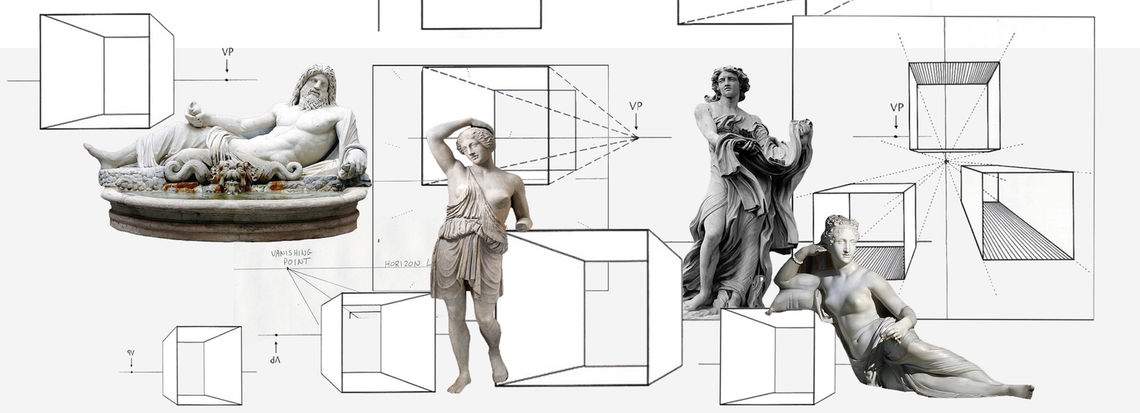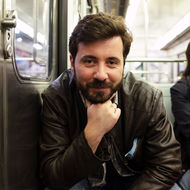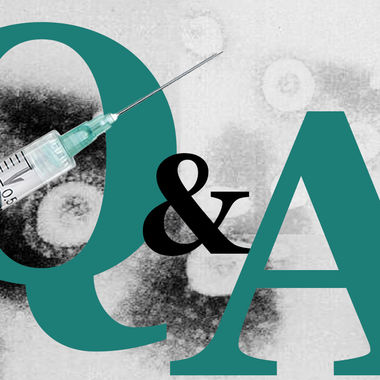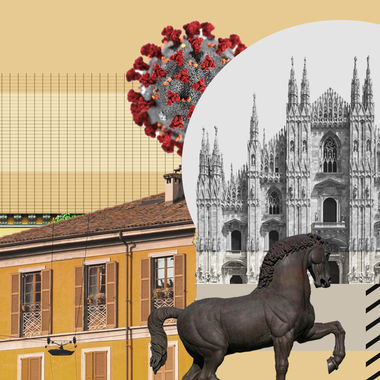
Rome, Italy
On the last day of my trip to Armenia, I was sitting in a cab driving towards Yerevan’s airport, when the radio started playing Hotel California, a classic rock ballad from the 70s. I thought it was a perfect occasion to record a selfie-video for my friends at home. So I pressed the record button and talked about the ups and downs of the week. The hook: “What’s up? Still dealing with that silly Coronavirus?!”
A month later, here I am, sitting at my desk, on the fifth floor of an apartment building made up of two rooms and 38 square meters, in one of Rome’s southern districts. I would never have thought that I could miss the honking of cars, the crazy Italian driving attitude. Yet, I am writing about it wholeheartedly. Worse than that, I feel as though my mind is quickly producing nostalgic moments of things I haven’t lost. How could you explain that the noise of a few cars rolling down the road evokes the sound of waves crashing on an Italian beach at sunset? Is this just a fantasy?
Friends, parents and colleagues abroad keep asking me how it is like to live under a lock-down. Well, for one, it takes an hour to enter the grocery store. And once you’re in, you are gently reminded to hurry up with your shopping. The best “aperitivo” in town? It’s at 7:30 p.m. on Whatsapp, clinking glasses of wine on your Macbook’s screen. Soon enough, Friday’s pizza at home on the couch becomes the climax of the week. Of course, the delivery guy stands at a distance, and he can keep the change.
But if I have to be totally honest, the first days fly by. In the end, the lock-down is something new as well. And so does the second week as the whole singing-from-the-balcony hype makes you feel like a national hero. It’s only during the third week that you suffer the first psychological setbacks and you cannot but start wondering: for how long?
The other day, at the beginning of the fourth week, I was on a video call with a good friend of mine and former colleague who lives in Paris. This is what he told me: “You know Alex, this thing, this crisis, made me really think about how useful we are in society. I mean, all this writing and entertaining ... In the end, what really matters are the basic things, isn’t it? The first thing I'll do when this is over is move to the countryside for a while. You know, just get away from the city.”
Would it be a good move? I have no clue. Yet, I believe that his thoughts signal something meaningful. This crisis is raising many questions about ourselves and how our societies function. All of a sudden, political issues that were taboo have turned into focal points of the public debate: Does it make sense to be part of the European Union? Are open borders a positive thing at all?
Probably, this is what a big societal crisis is meant to unleash. And from a theoretical point of view, this could also be positive. In 2012, Markus Blyth, an American political scientist, published Great Transformations. In the book, the author explains how political paradigms change in times of crisis and how new arising ideas can shape decades to come in terms of policymaking.
But the problem with this COVID-19 outbreak is that it doesn’t feel like there are any new ideas at hand. And this is why this lockdown is so suffocating. If anything, it looks like we are backsliding into a world of the past. Last week, in Hungary, the Parliament authorized Prime Minister Viktor Orban to rule by decree, endlessly. And in contrast to the financial breakdown of 2007-2008, there appears to be no villain in this story. There is no evil or greedy banker or broker we can point our fingers at. It just feels like an enormous painful void.
Notwithstanding the media attention on solidarity actions, this crisis is highlighting a lot of shortcomings of our modern societies for which it has become impossible to turn a blind eye to. I am not just talking economics and inequalities here (on Bruegel for example, if you’re interested). In Finland, experts worry about the effects of the crisis on levels of alcoholism. Whereas news from the UK shows that we might be at the forefront of excessive policing. Not to speak about the fact that, in Ireland, the Coronavirus has laid bare the homeless crisis. And in France the government decided, on the basis of soaring numbers of incidents, to pay the hotel rooms for women at risk of domestic violence. So much for the press review.
So where does all of this leave us? It is tough to say. But I believe that once the crisis is over - because, eventually, it will fade away - we will be faced with a lot of soul-searching, each of us. But for now, it just feels like I’m sitting in a room of the Hotel California, looking for “a passage back to the place I was before.”
*As of March 31, the Italian government has prolonged the national lock-down until April 13. But the Italian Minister of Health, Roberto Speranza, advised the population “not to give in to optimistic views.” Italy is the country with the highest toll of deaths due to Coronavirus in Europe and in the world.
also read
Coordinated Global Effort for Effective COVID-19 Vaccine
By Lara Setrakian , Arpine Grigoryan
In this Q&A with EVN Report, epidemiologist and expert in vaccine development Seth Berkley talks about efforts to find an effective vaccine and a global mechanism to make sure it is available to those who need it.
City of Workaholics During COVID-19
By Tatevik Avetisyan
What is life like in one of the epicenters of the global coronavirus pandemic? In this essay, Tatevik Avetisyan, who has been living in Milan, Italy for more than a year, peels back the layers of the human condition.






EVN Report welcomes comments that contribute to a healthy discussion and spur an informed debate. All comments will be moderated, thereby any post that includes hate speech, profanity or personal attacks will not be published.